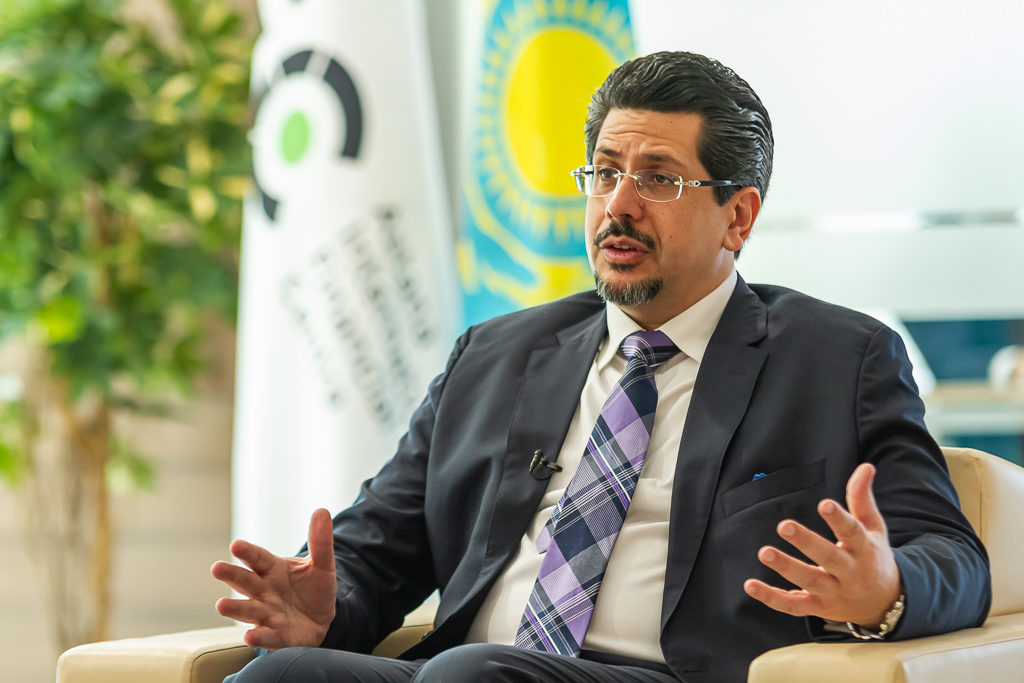NUR-SULTAN – Islamic Corporation for the Development of the Private Sector (ICD) seeks to advance the private sector in Central Asia through funding agricultural and transport infrastructure projects, thus hoping to include them in the Islamic Finance market, ICD CEO and General Manager Ayman Sejiny told The Astana Times.
Founded in November 1999, ICD is an independent subsidiary of Islamic Development Bank (IDB or IsDB). The organisation complements IDB development and promotes the private sector in member countries to ensure their economic growth. ICD identifies investment opportunities in the private sector of member countries and offers compatible Sharia financial products and services to expand their access to Islamic capital markets.
The member states in the Central Asian region will be better integrated with the Islamic capital market or “100 financial institutions that are dealing with us (ICD) and we have ownership in,” said Sejiny.
The IDB, for example, has approved approximately 70 projects in Kazakhstan worth $1.61 billion. The bank’s first priority is financing operations in transport infrastructure development, which accounts for 55.8 percent of all operations. The area receives most of the company’s attention, as the movement of goods and services is key for any business to flourish and social income to grow.
Financing is also directed towards agriculture (23.3 percent) and small and medium-sized enterprises (SMEs) and the financial sector (19 percent combined).
“SMEs are our main target, and we definitely want to support member countries, including Kazakhstan,” he said.
IDB projects in Kazakhstan include reconstructing the irrigation and drainage system in Southern Kazakhstan and the Almaty Region ($143 million); technical assistance (grant) to analyse agriculture and strengthen the capacity of food security ($250,000); technical assistance to develop Islamic finance with the Astana International Financial Centre (AIFC) ($270,000) and technical assistance to the Islamic Organisation for Food Security ($300,000).
“Also, we are interested in green sukuk (Islamic bonds), which means we are supporting SDGs (sustainable development goals) and sources of green power,” he added.
The general idea behind issuing more sukuks in the country is “to develop a debt capital market (DCM) in Kazakhstan and in the (Central Asian) region and to open up foreign investment and opportunities into this market.”
DCM is the market indicator through which companies and governments can raise funding through trading debt securities, including corporate and government bonds, among others.
In addition, the sukuk market will reduce the shortage of offices to develop ICD projects around the world.
“Because the need (for all projects) is around $4 trillion. In order for us to close that gap, all the development banks can only mainly provide $200 billion. The difference between the $200 billion and $4 trillion is big, and we only have to close the debt capital market and equity capital markets,” said Sejiny.
“We want to start with a good introduction of issuing (sukuks), maybe a $100 million, and then we will be increasing it,” he added.
IDB, established Dec. 18, 1973 at the Organisation of Islamic Cooperation (OIC) Finance Ministers Conference in Jeddah, Saudi Arabia, officially began operations Oct. 20, 1975. Kazakhstan became a member after joining OIC in 1995.

